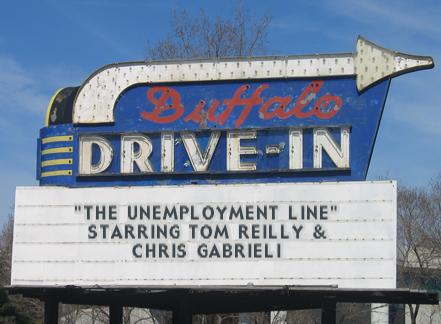Very good post RKG.
You really think Frisoli will be beat by Coakley?
Yes. The realilty of American politics is that very few people cast votes based on their perception of issues. We all preach ideology, but as a class we vote based on image, impression, "personality" and the like; it is sort of like Haagen-Dasz ice cream. (A few years ago a small ice cream manufacturer in Brooklyn got the idea that if he came up with a ritzy sounding name (that, in fact, has no meaning), glitzed up his packaging, and increased the price by 75%, people would buy it. He was right.)
Martha Coakley, who is in fact a lovely person and a pretty good District Attorney, has the political machine required to address the reality of American politics. I doubt that Frisoli has, or would even attempt to acquire, the same thing. He'll talk about issues; people will nod appreciatively; and then they'll vote for someone else based on image.
That is why I said that, if you want to influence an election based on an issue on which a group of folks have a common interest, you have to organize. In effect, you form what amounts to a voters' union, where the appointed spokesman has the ability to promise to deliver a block of votes in exchange for whatever and the ability to deliver on that promise. If you convince a candidate you have that power, and if your block is large enough, you can have an impact. My guess is that, if you had the time, energy and resources -- and cooperative voters -- you could put together 140,000-odd shooter votes, which would be enough to tip the election.
But shooters of this world would never submit to being organized this way. Read the posts on this thread: some are going to vote for Mihos (nice guy but no chance of winning and therefore a wasted vote); some are not going to vote at all; and the net impact of the shooters as a group is zero'd out.
Sorry, but you asked.

![Crying [crying] [crying]](/xen/styles/default/xenforo/smilies.vb/006.gif)
![Sad [sad] [sad]](/xen/styles/default/xenforo/smilies.vb/004.gif)
![Grin [grin] [grin]](/xen/styles/default/xenforo/smilies.vb/041.gif) Beauty is in the eye of the beholder right. Right JellyFish?
Beauty is in the eye of the beholder right. Right JellyFish? ![Smile [smile] [smile]](/xen/styles/default/xenforo/smilies.vb/001.gif)


![Wink [wink] [wink]](/xen/styles/default/xenforo/smilies.vb/002.gif)